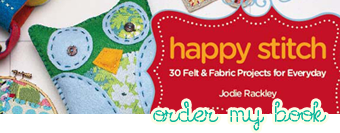
CHARITY shop sales are booming as family budgets tighten and environmentally conscious shoppers turn to recycled goods over new items.
Latest retail figures show new clothing sales are down by 8.8 per cent but the tills are alive at Salvation Army and St Vincent de Paul outlets where sales are up 11 per cent and 13 per cent respectively. The trend is being driven by style-savvy bargain hunters known as frugalistas, or frugal fashionistas, as well as middle-income mortgage-belt members hit by rising living costs.
"With the economic conditions in Australia, we see people hurting," Salvos Stores general manager Neville Barrett said. "It is affecting a different type of person ... store managers are reporting that a lot of the customers they're seeing are new. They have turned to places like the Salvos out of economic necessity."
Shows such as Sex And The City, which feature op-shop style, and the popularity of vintage clothing, have reduced the stigma of being a second-hand rose. Thrift stores are popular hunting grounds for fashion-forward shoppers after an individual look, St Vincent de Paul senior researcher Andy Marks said.
"There are some funky things that you can get at Vinnies that you can't get elsewhere," Dr Marks said. "We often get very high-quality goods donated to our stores. People often come across designer-label items if they dig deep enough on the rack."
While cheap frills draw some shoppers, others are motivated by a desire to help the planet. "If you buy something from the Salvos you know you're reducing landfill," Mr Barrett said.
Similarly, green is the new black for St Vincent de Paul shoppers keen on reducing consumption. "Vinnies [were] environmentalists long before it became an issue on the political and public agenda," Dr Marks said.
The Council of Textiles and Fashion Industries of Australia has criticised "landfill fashion". In a report to the Federal Government last month, it said cheap, disposable fashion items were creating an environmental nightmare, with 10,000 litres of water required to make a simple cotton T-shirt.
Australian women under 30 buy an average of 102 new items a year.
The compacting movement, whose followers refuse to buy new clothes apart from underwear, is fighting the fast-fashion stores. Even actor Cate Blanchett has been hailed as a compacter, wearing the same shoes to red-carpet events.
Source: The Sun-Herald
































No comments:
Post a Comment